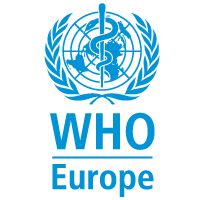
Ben Ogden, a 24-year-old personal trainer and content creator, is trying to get people to talk about their mental health. He is doing it in a rather unconventional way: by standing in crowded train stations across the United Kingdom holding cardboard signs that read, for example, “If you’re struggling with your mental health, Lets Talk”. The missing apostrophe is intentional to attract attention from passers-by.
“I really believe that we need to make mental health a part of normal conversation,” said Ben in his opening address to the first-ever meeting of the Pan-European Mental Health Coalition, “especially around young people, and post-pandemic as well.”
Since October 2021, Ben has been holding signs in train stations in Leeds and other cities in the United Kingdom. The content of the signs changes, ranging from disclosing his own struggles with depression to more general invitations like the one above. The idea is to encourage people to talk on their own terms by letting them approach him, taking time from their busy schedules for their own mental health.
“That’s why I do it in a train station,” he says. “That quick conversation that we might have in the train station might make a massive impact on their day.”
Suicide is the second leading cause of death among 10- to 19-year-olds
Mental health, especially that of youth, is a growing concern across the WHO European Region. According to Mental Health Europe, over 9 million young people across the Region report poor mental health, and suicide was the second leading cause of death among those aged 10 to 19 even before the pandemic.
“I’ve always struggled a little bit with my mental health,” says Ben. “But it was really lockdown and going through a few personal experiences in my life which I think triggered my own mental health.”
The WHO/Europe Technical Advisory Group on the mental health impacts of COVID-19 reported that the mental health of youth has worsened as a result of the pandemic. Reasons include social isolation, general anxiety about the pandemic, and uncertainty about work or school. Although talking about mental health problems can help, it can be difficult for young people to speak up because of entrenched stigma.
Ben also felt reluctant to share his feelings with his family and friends. “I didn’t want to put pressure on them,” he says. The idea for the signs came about when he took the time to ask a good friend how his mental health was.
“We were both suffering with mental health problems,” Ben says. “And I just kind of asked him, ‘Are you actually okay?’ And we ended up talking for a good few hours about our own mental health. I kind of thought after that conversation, if we’ve spent every single day for the past 3 months together and neither of us actually knew that we were both struggling, what is someone going through who maybe sees their friends once a week?”
Sparking a conversation
The signs came as an idea of how to get that conversation going. Their first time was a nerve-wracking experience. “We went to Leeds at 10:00 a.m. and didn’t end up filming until 3:30. I think we spent the whole day pondering, walking around, delaying it, delaying it,” he recalls. “And then I kind of thought, ‘You know what, it’s not about me, it’s about everyone else.’”
“If you look at the original video, you can see I was so petrified. I felt so self-conscious,” he added.
Ben’s bravery paid off – since that first video, his following has rapidly grown. Between 70 000 and 100 000 people watch his live streams, which typically last about an hour, and the videos have received over a million “likes”. His followers have also set up a Discord server to carry on conversations about mental health outside of the live streams, with about 10 different rooms to encourage 1-to-1 conversations about mental health.
Ben’s efforts join a chorus of voices asking for greater investment in mental health, especially for youth. The demand is so great that 2022 has been deemed the European Year of Youth. For the past 3 years, Mental Health Europe has organized a week-long campaign in May called European Mental Health Week to draw attention to mental health issues and to galvanize action among policy-makers and the general public.
This year, the theme for the week is “Speak up for mental health”, and it aims to highlight issues with youth mental health. The campaign is revealing a set of policy requests to European Union policy-makers to address current gaps in mental health systems, particularly for youth.
Similarly, WHO/Europe has been drawing attention to youth mental health with the launch of a new programme focused on quality of care for children’s and adolescents’ mental health at the Athens Quality of Care Office. Supporting the mental health of young people is also one of the work packages of the Pan-European Mental Health Coalition, to which Ben contributed during his visit to Copenhagen, Denmark, for the Coalition’s first meeting.
For Ben, the question for governments and other organizations is how to do what he does on a bigger scale. “I don’t know how – from school, to college, to universities to workplaces, I feel like there needs to be something that carries you the whole way through, like a career.”
He plans to continue with his signs. He even held up a sign in front of Copenhagen City Hall after the Coalition meeting – his first outside of the United Kingdom.
Join the conversation on social media. Ben can be found on TikTok as @itsbenogden and on Instagram as @iambenogden.

